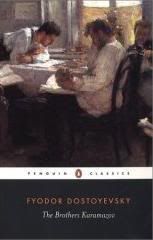
I have strong views on a certain topic which has entered the political domain: abortion.
My interest here is not in debating the issue. My concern is in overcoming the deceitfulness of public opinion in order to understand how to live a devoted life.
Although I believe there is room for parents to discuss before God cases where a mother's life is at stake, I am convinced that the vast majority of abortions are murder.
Just as the serpent presented Eve with a number of confusing facts to consider before she made a choice she would greatly regret, the world presents mothers with information that entices many but is detestable to God. Eve had a desire to obey her Lord and her husband, Adam, but in the moment of temptation she forgot what mattered the most to her. In the same way women are naturally inclined to love and nurture their children ... but the world always has a different plan.
Learning to see through the deceit of the world is an important responsibility which heaven gives to every pregnant woman -and also to each of us. The difficulty lies not in recognizing how one ought to live, but in making this method one's own.
Here are some aspects of the issue to consider:
1) Despair does not justify wrong-doing; despair is the essence of wrong doing, and it confirms that there was a wrong doing.
To me it is clear that killing an infant because a person "needed" to pursue a career, relationship, or education is a desperate act. It is precisely the element of despair that makes it murderous.
In the case of an accidental death it is very different.
Sadly some couples accidentally have a part in their infants' deaths -perhaps the baby is left with a toy and suffocates. As far as I am concerned, the parents are not murderers because they (presumably) did not leave the toy with the infant in a desperate attempt of some sort.
The element of desperation is the essential factor in all crime and all sin. To explain the act by referring to one's despair is to confess to one's true guilt.
2) No environment can give anyone meaning in life.
Ungodly men have supposed that if a child is to grow up in an environment where they are unloved they are better off removed from the world in their infancy. They foolishly suppose that -if an unwanted child were brought into the world- they would lead a life of crime and unrest.
Such folly is exposed by Christ's assertion: "It is not what goes into a man that makes him unclean."
Everyone -let me repeat it again- everyone has a choice about how they are going to live their lives. To quote the athiest philosopher, Jean Paul Sartre, "Man is condemned to be free." If a person chooses evil -as we all have in one sense or another- they are made ineligible to fault their circumstances.
The world is always in the business of explaining its actions away, but the obedient life has no need of justifications.
3) Quality in life comes from love and not from external circumstances.
Suppose a single mother decides to abort her unborn child. Suppose she says to herself, "Now I can find meaning in life because I will have a career or more money to spend elsewhere or time to spend with my friends...". Would such a woman have more quality in life?
Now suppose this woman is prevented from getting a better career or education (which often turns out to be the case because desperate acts tend to lead to more desperate acts). Would the possibility of having a better education or career give a person more quality in life if they had to murder their own unborn son or daughter?
If a person chooses to find their meaning in life through their career or reputation or money, at what point does their life become meaningful? How many friends do they have to have? How much money do they have to make? And is their life worth living before they gain such things?
Measuring the value of one's life in terms of one's external accomplishments and possessions is unlawful in the sight of heaven. The fact that we all do this does nothing to excuse this fact.
The world continually preaches that people should live in a way they can boast about. This is another way of saying that a person's life should first have meaning in the eyes of other people. The result is always, always that the one who lives for the world's approval fails to find approval before God or even their own approval.
Love is the only way one may find quality in life. Paul wrote that if he had the gift of prophecy and could fathom all mysteries and all knowledge and if he had a faith that could move mountains -but he had not love- he would be nothing.
God does not stop loving us when we make choices that are pleasing to Him. In the same way, He does not withold from us the responsibility of loving our neighbor when an easier life is at stake.
I hope I have made my own views on the matter clear. Again, the important part is avoiding desperation by living a life of faith. This is a task for all of us, not only would-be mothers.
Labels: Angst, Despair, Love and Loving









